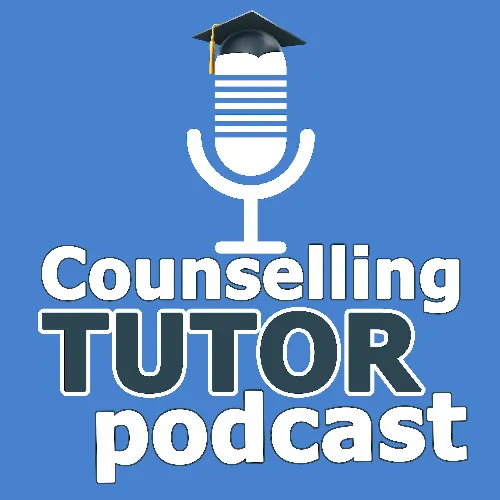162 – Counselling Clients on Medication
- Author
- Ken Kelly and Rory Lees-Oakes
- Published
- Sat 19 Sep 2020
- Episode Link
- https://counsellingtutor.com/counselling-clients-on-medication/
Being Sent for Counselling - Managing the Disinhibition Effect
In episode 162 of the Counselling Tutor Podcast, Ken Kelly and Rory Lees-Oakes look at mandatory personal counselling for students of counselling and psychotherapy. 'The Digital Counselling Revolution' then focuses on a theory to be aware of when working online: the disinhibition effect. Finally, in 'Practice Matters', the presenters discuss counselling clients on prescription medication.
Being Sent for Counselling (starts at 1.30 mins)
Given that we are taught in our counselling studies that people should not be 'sent' for counselling - i.e. that counselling should always be an active choice by the client - then the fact that many practice-level counselling and psychotherapy courses require students to have a certain number of hours of personal counselling seems incongruent.
The amount required can vary greatly, depending on a combination of the course provider, the awarding body and the modality being studied.
Rory and Ken provide some tips on how to approach this course requirement:
If the thought of having to have personal therapy is not a welcome one for you, do reflect on your feelings about this.
Bear in mind that there is no reason why counselling should only be for people with specific problems of which they're already aware: many people use it for personal development and growth.
Practice-level counselling training naturally gives rise to many issues that you could take to personal counselling, e.g. your personal development, juggling the various demands in your life, and how you experience the group dynamics on your course.
Waiting until you are on your placement and so client-facing may provide you with more issues to reflect on, e.g. your feelings in that situation.
Remember the Johari window: we know only what we are aware of. And personal counselling gives us the opportunity to become aware of parts of us that are currently unseen.
When going for personal counselling, try to enter fully into the spirit of it, rather than observing the counsellor and trying to make links between your learning and how they are working.
Experiencing personal counselling helps you become a better counsellor by learning how it feels to be in the client's chair.
Personal counselling will provide you with great material for your personal-development assignments at college.
Managing the Disinhibition Effect (starts at 14.00 mins)
Working online as a counsellor - an intrinsic part of the digital counselling revolution - requires an awareness of various theories that you may not have learned about in your training for face-to-face work. One of these is the disinhibition effect.
You may have heard the term 'keyboard warrior', describing someone who behaves aggressively or unkindly online.
It is the disinhibition effect that lies behind this phenomenon, creating a feeling of freedom and lack of accountability that makes people behave online in ways they would not in person.
The term 'disinhibition effect' was first coined by psychologist John Suler in his 2004 paper 'The Online Disinhibition Effect'.
Ken and Rory explore the impact of this on boundaries and clients' extent of self-disclosure. They warn that the disinhibition effect can also affect the counsellor: supervision is vital in protecting against this.
